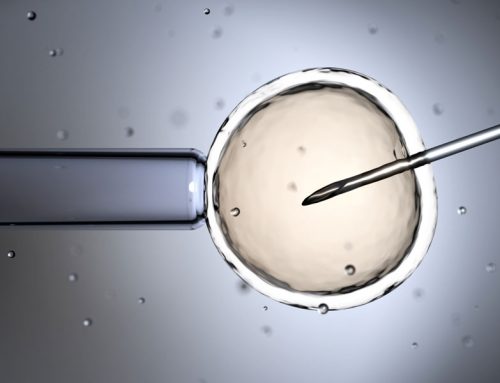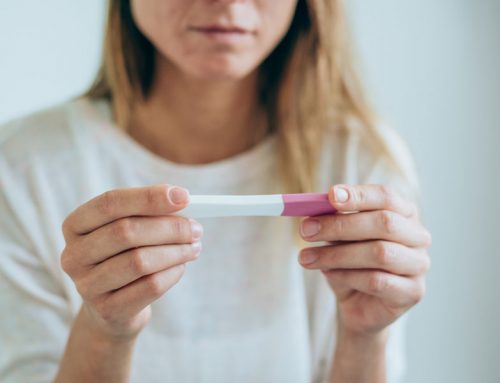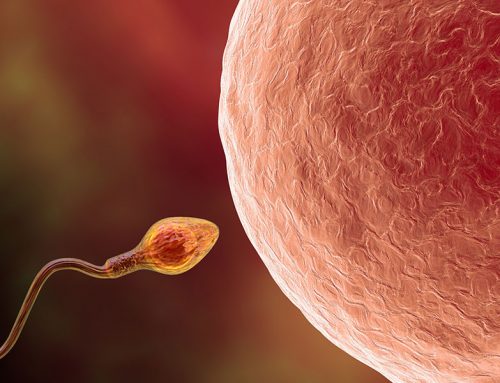Pretreatment with Coenzyme Q10 improves pregnancy outcomes in women with diminished ovarian reserve. These are the findings of a review of six randomized controlled trials. Together, the six trials enrolled 1,529 participants with poor ovarian reserve. The study participants were Chinese women who were receiving infertility treatment with IVF/ICSI [Lin 2024].

For pregnancy to happen, the ovaries must release healthy eggs. The eggs must pass into the fallopian tubes. There, an egg must be fertilized by the sperm. Then, the fertilized egg must move to the uterus and attach to the lining. CoQ10 pretreatment can improve the pregnancy success rate.
Analysis of the pooled data showed that CoQ10 pretreatment was significantly correlated with the following outcomes [Lin 2024]:
- improvement in clinical pregnancy rate
- greater number of optimal embryos
- greater number of oocytes retrieved
- reduction in cycle cancellation rate
- reduction in miscarriage rate
The review authors concluded that CoQ10 pretreatment is an effective intervention that can improve IVF/ICSI outcomes for women with diminished ovarian reserve. However, they also remarked that rigorously conducted trials are still needed to clarify the optimal timing, dosage, and duration of the CoQ10 intervention [Lin 2024].
Definition of Female Infertility Terms in Coenzyme Q10 Studies
In their review, Lin et al point out that approximately 12.7 per cent of reproductive age women in the US are afflicted by infertility issues. The researchers estimate that the corresponding percentage in China may be as high as 25%.
Oocytes.
The female cells that become the eggs to be fertilized are called oocytes.
Diminished ovarian reserve.
Women with diminished ovarian reserve are women who have fewer eggs in their ovaries than do other women their age. Obviously, having a lower egg count makes it more difficult to get pregnant. Egg counts will decrease as women age. However, lower egg production occurs earlier than expected for some women.
ART.
Assisted reproductive technology includes medical procedures that are used to treat infertility. ART involves procedures such as IVF (in-vitro fertilization), ICSI (intracytoplasmic sperm injection), and the use of fertility medication. Pretreatment with CoQ10 supplements seems to be a viable medical intervention.
Embryo.
An embryo is the term for the initial development of a new organism following the fertilization of the female egg by the male sperm.
Mechanisms of CoQ10 Pretreatment of Infertility
The use of CoQ10 pretreatment before the initiation of artificial reproductive techniques should improve the prospects of success. How this happens is a somewhat sophisticated process.
- CoQ10 pretreatment for two to three months can promote embryo development. It can increase the rates of fertilization by reducing the levels of harmful free radicals in the ovary.
- CoQ10 pretreatment can promote embryo development by reducing the level of expression of apoptosis-related genes in oocytes.
- CoQ10 pretreatment can reduce spontaneous abortion rates by lowering the levels of oxidative stress and inflammation in the ovary.
Conclusion: CoQ10 Pretreatment and Improved Pregnancy Rates
CoQ10 pretreatment before ovarian stimulation is a useful strategy for improving the outcomes of IVF/ICSI treatment in infertile women [Zhu 2023; Giannubilo 2018].
CoQ10 pretreatment of infertile women prior to an ART cycle can increase the clinical pregnancy rate, the number of oocytes retrieved, and the number of optimal embryos [Lin 2024].
CoQ10 pretreatment of infertile women prior to an ART cycle was associated with a decrease in cycle cancellation and a decrease in the miscarriage rate [Lin 2024].
CoQ10 pretreatment of infertile women is safe, well-tolerated, and affordable [Lin 2024]. However, more clinical evidence is needed to establish the optimal timing, dosage, and duration of the CoQ10 pretreatment.
Moreover, there are notable differences in the absorption and efficacy of commercially available CoQ10 supplements. It is important to buy a CoQ10 supplement that has documented absorption and bioavailability [Lopez-Lluch 2019].
Sources
Giannubilo SR, Orlando P, Silvestri S, Cirilli I, Marcheggiani F, Ciavattini A, Tiano L. CoQ10 supplementation in patients undergoing IVF-ET: the relationship with follicular fluid content and oocyte maturity. Antioxidants (Basel). 2018 Oct 13;7(10):141.
Lin G, Li X, Jin Yie SL, Xu L. Clinical evidence of Coenzyme Q10 pretreatment for women with diminished ovarian reserve undergoing IVF/ICSI: a systematic review and meta-analysis. Ann Med. 2024 Dec;56(1):2389469.
López-Lluch G, Del Pozo-Cruz J, Sánchez-Cuesta A, Cortés-Rodríguez AB, Navas P. Bioavailability of Coenzyme Q10 supplements depends on carrier lipids and solubilization. Nutrition. 2019 Jan;57:133-140.
Zhu F, Yin S, Yang B, Li S, Feng X, Wang T, Che D. TEAS, DHEA, CoQ10, and GH for poor ovarian response undergoing IVF-ET: a systematic review and network meta-analysis. Reprod Biol Endocrinol. 2023 Jul 18;21(1):64.
The information presented in this review article is not intended as medical advice. It should not be used as such.









Leave A Comment